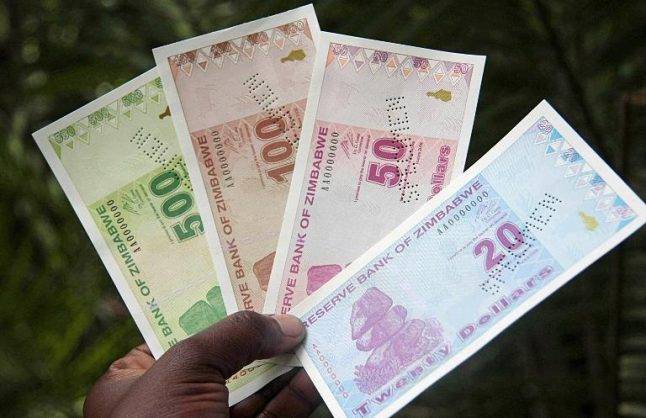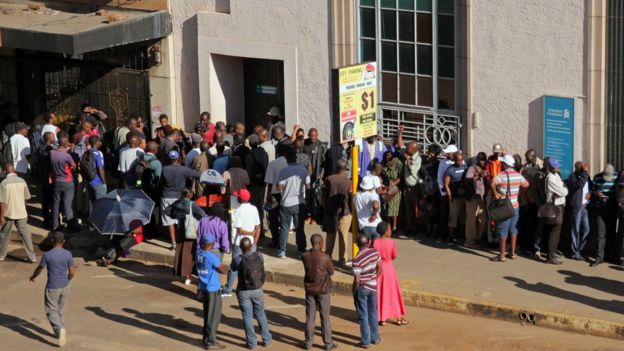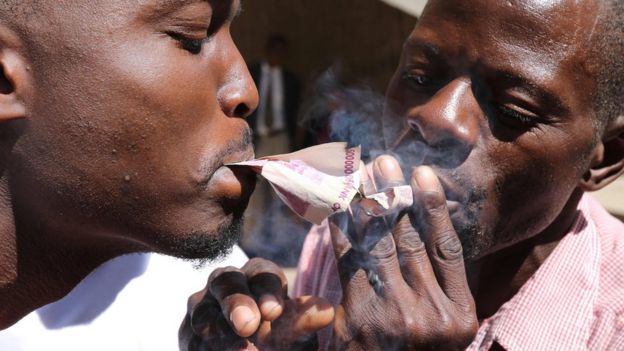No Need To Smoke Old Wads – Zimbabwe Rebasing Economy After New Currency Adoption

Moving away from what was described as a non-benefitting means of exchange, Zimbabwe adopted a new currency dubbed the “Zollar” and officially called RTGS dollars which comprises bond notes and RTGS (electronic money).
The new currency possesses a legal tender status and will act as the unit of account for the Southern African country’s government’s books. The official exchange rate for this quasi-currency was set at a one-to-one rate with the U.S dollar, but it the Zollar was reported to have changed to 2.50 per dollar.
How Did We Get Here?
Zimbabwe’s official exchange rate has experienced a maxi-devaluation of 60 percent. The country’s finance minister, Mthuli Ncube, said on Wednesday that the economy of the nation is moving to rebase its economy after adopting a new currency.
He also said that the economy had grown more than anticipated in 2018, but would be done a number on this year after a drought and a cyclone.
In February, the central bank eliminated the peg between its quasi-currency bond note and electronic dollar against the United States dollar in February, merging them into a unified transitional currency – RTGS dollar as we know it.
More than rumors, Zimbabwe has a checkered history with currency. The country, in 2009, trenched the Zimbabwean dollar and started using the US dollar, no thanks to the hyperinflation that took its toll on the former currency.
At the apogee, prices nearly doubled daily, and reports said that the reserve bank printed notes worth 100 Tn in Zimbabwean dollars just to keep up with pace.
The problem actually arose from the fact that more USD left the country more than it was coming in, resulting in short supply of cash.
Soon, long queues were in every bank in the country as people tried to get their money out. Responding to the shortcoming, the government, in 2016, introduced bond notes and coins supposed to have the same worth with the USD.

Z$ Value Loss
Another problem entered – no one trusted that the new initiatives were as equivalent as advertised. So, on the black market, bond notes tremendously lost their value against the dollar.
Upon introducing the RTGS dollar, the government said it wanted to price to be determined by the market. After initially suggesting 2.5-to-USD, the below-expectation reality for the bond note in the black markets was selling at more than 3.5 to the dollar.

While all was happening, the Zimbabwe dollar itself was more or less worthless at some point. But some Zimbabweans seemed to have found a better use for the currency.
Rather than seeking ways to exchange, keeping them as African relics or dumping them in refuse bins, smokers are captured having a good time puffing these wads of cash, using the old notes as some makeshift rizla or alternative to cigarette.
Zimbabwe last rebased its economy in October last year, when the nation boosted by 40 percent to USD 25.8 Bn.
According to Ncube, the adoption of the RTGS$ demands another rebasing exercise, which put the economy at RTGS$ 70.1 Bn or USD 21 Bn at the official exchange rate.